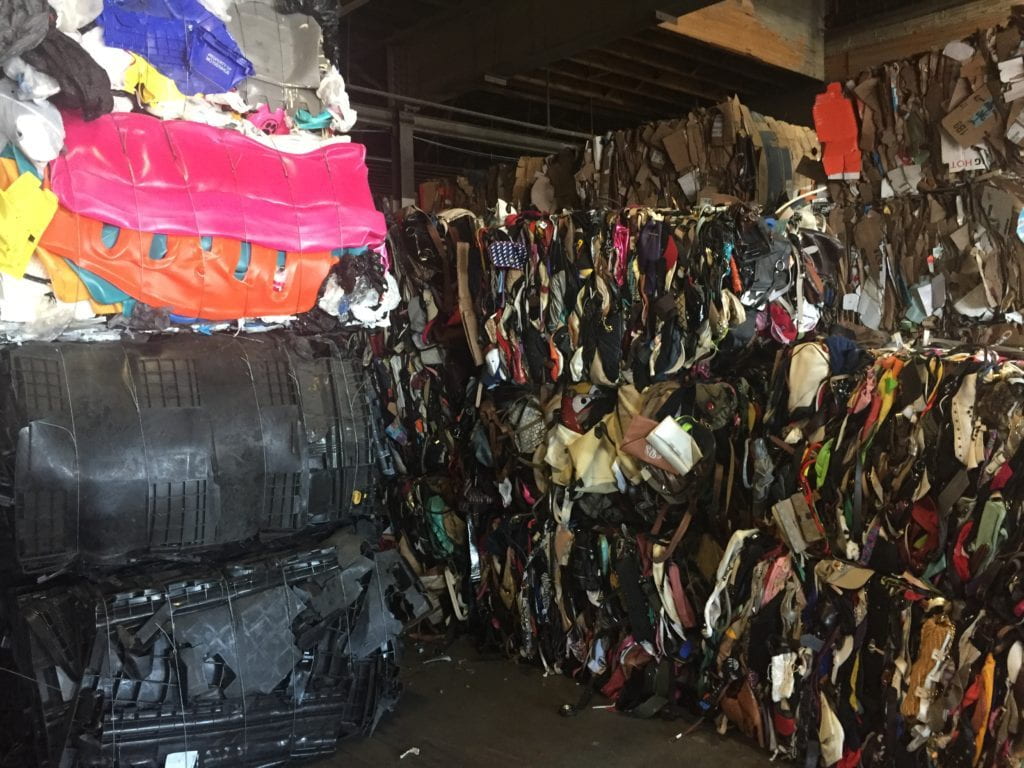The end of the academic year is quickly approaching. Pretty soon it will be time for students to pack up and scatter across the globe, wherever their summer or graduation plans may take them. Since many WashU students come from farther than a packed car-ride away, it is not practical to ship or store their belongings over the summer, creating a glut of usable materials without a home.
Fortunately, there is a 10-year history of Share Our Stuff, a program created to connect student’s un-needed items with appropriate re-purposing organizations across St. Louis. Share Our Stuff will kick off at the end of April, as Reading Week begins. Collection points in each residential hall and on- and off-campus residential buildings will appear to collect materials including: clean clothes and linens; unopened nonperishable food; books; appliances and electronics; office supplies; furniture and furnishings; plastic drawers, shelving and storage; and small and large household items. On the Saturday after graduation (May 18), the Lightening Your Load donation drive will take place for those living in off-campus housing.
While several partners play a role in collecting and repurposing the materials, including SWAP, a student-run non-profit organization that holds onto items over the summer to sell back to WashU students in the fall, MERS Missouri Goodwill Industries is the organization that accepts the majority of the materials. What do they do with it? We were curious too, so we took a tour behind the scenes!
A TOUR OF RESALE/REPURPOSE/RECYCLE OPERATIONS
MERS Missouri Goodwill Industries is a non-profit agency operating in 62 career centers throughout 89 counties in the bi-state area of Missouri and Southern Illinois. Annually they serve more than 60,000 individuals. Revenues from their 44 stores assist with funding MERS Goodwill job training and employment services.
Goodwill is an early example of a revenue-generating social enterprise, a non-profit model that shifts organizations from being reliant on donations or grants to being financial self-sustaining through an enterprise that aligns with their mission. For Goodwill, that means utilizing their stores’ sales floors and internal operations as a training ground for the clients they serve. For example, about 50% of the employees at the Goodwill Outlet store in St. Louis City were previously incarcerated. 25% have graduated from a Goodwill job training program.
Goodwill has successfully tapped into the repurpose/reuse/recycle economy that captures unwanted materials and creates jobs while keeping materials out of the landfill. The business model follows the “highest and best use” principles. After donation, materials go to a retail store where they are available for sale. Some materials, like high-value books or high-end clothing, are diverted for specialty sales and online auctions. Each item is tagged so that staff can tell if inventory has been available for more than 30 days. If something doesn’t sell after its allotted time, it is boxed up and transported to the outlet store.
The outlet store has a different model where customers pay by the pound. Items are set out in large cart tables, with a new round of carts coming out every 10 minutes. Clientele at the outlet varies from college students looking for ugly sweaters or a Halloween costume to a wide variety of entrepreneurs. Some specialize in book sales. Others focus on treasures for resale at flea markets or out-of-town thrift stores. Others scrap electronics for specialty replacement parts that you can’t get from the manufacturer. And some look for baby clothes that they clean up and repackage through online market places.
Once the materials are given a fair chance in the outlet setting, they move on to the recycle phase. Goodwill has been creative and resourceful in finding buyers and outlets for most types of materials, saving on disposal costs and further postponing contributions to the landfill. For example, textiles are baled and sold to domestic and international buyers. There are buyers for pairs of shoes as well as single shoes. Blankets go to the humane society or homeless shelters. Electronics go to a certified E-Waste recycler. They even have a company that is buying incomplete sets of dishes and utensils to match up and sell to college students! Bales of large plastic items and belts/purses/shoes ready to be sent to bulk buyers are featured in the photo above.
Through their massive efforts, Goodwill recycled 30 million pounds of materials last year, saving money that they can put back into their programs and feeding a variety of other businesses with feed stocks for their operations.
You can be a part of this ecosystem of repurpose and reuse! Check out this article from StudLife on how to navigate the Goodwill Outlet and check out this map to find one of their retail stores.
PREPARE YOUR DONATION: “HIGHEST AND BEST USE”
To engage in this process in a meaningful way, there are a couple of things that you can do in preparation for your donation. Ensure your donation will go to the highest and best use by following these guidelines:
- Wash items before donation. Send clothes and linens through the laundry; wipe down household items, etc.
- For items donated through Share Our Stuff in the Residential Halls, please sort items according to the signs. If something is not on the list, leave it out! Please keep these areas as tidy as possible to ensure the program continues to be well received by university administration.
- Textiles that are not fit for resale can be put in a bag marked SCRAP FABRIC to be routed to a textile recycler.
- Broken/unfix-able/un-usable items should be appropriately disposed of (students can take e-waste items to STS for proper recycling).
- Anything with mold or mildew should be thrown away.
- Open food and toiletries are not appropriate for donation. However, there are probably plenty of people in your ResHall who have run out of food or laundry detergent. As you get to the last weeks of residential living, share and swap to prevent waste!
